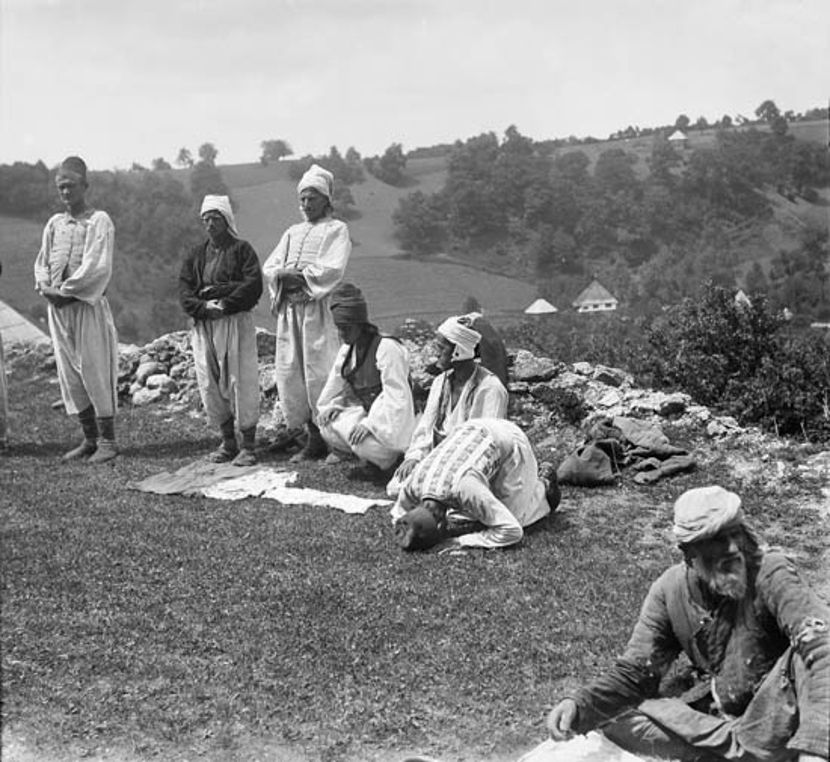What exactly does it mean - Allahu akbar?! All on the shout with which jihadists shoot at children and cut off the heads
The literal translation from Arabic would, however, be "God / Allah is greater", and this is the real meaning of that since, so understood, it is used to, in the minds of people, humiliate all phenomena and concepts that seem great and are not, and just by mere reminder that "God is greater".
LIKE US ON FACEBOOK – Telegraf English, or write to us: office@telegraf.rs
During the Muslim call to prayer that comes to the fore, since by it the believers are drawn attention that the prayer to God is more important than mundane activities by which they are currently occupied. Also, during the struggle, God is greater than the enemy or fear.
It is a saying which is completely normal and common among Muslims and which is used in various contexts. We attached a negative connotation because it is uttered by the people who go around killing innocent children but this does not mean that it itself is negative.
You will not believe this, but there is nothing negative and bad when someone says that God is great, in any language.

Moreover, the Orthodox Christians in the Middle East, Syria, Lebanon, Palestine, Jordan, Iraq and Egypt, whose native language is Arabic, use the identical phrase as their Muslim neighbors.
Perhaps you would find it strange to here an Orthodox priest to say "Allahu akbar", but they would find your amazement strange, so they would perhaps ask you: "Do you think that God is not great?".
Let’s return to the Muslims and their use of takbeer. First, it is used at every stage of both mandatory prayers that are repeated five times a day, and at every stage of the optional prayers that believers perform on their own free will and desire.

The Muslims say "Allahu akbar" also in the time of some trouble or danger, as did in 1998. by Indonesian pilot seconds before the crash of his aircraft on the ground. When waiting for someone to return from the dangerous journey, a Muslim, when he/she sees the awaited one, might say "Allahu akbar" (and maybe "thank Allah").
When they are happy, when they celebrate the birth of a child, when someone dies, during the funeral, during Eid al-Adha and the Hajj, the Muslims will also say "Allahu akbar". The inscription of this phrase is or was on the flags of many Muslim countries: it was the flag of Saddam's Iraq, and it s still on the flag of Iran and Afghanistan.
So, everything depends on the context. And now we come to the troubled context.
"Allahu akbar" through the whole history of Islam was continuously used as a battle shout, and for the first time by Muhammad himself during the Battle of Badr.
In more recent times, during the Iranian revolution in 1979, it was the shout on whose wings they carried the Islamist coup.
Since the climb of jihadist movement started, from the eighties onwards, this shout has become a source of anger and fear around the world.
Jihadists shout it when shooting at innocent civilians, when cutting off people’s heads, before they are going to blow themselves up on a bus or train, before knocking their planes in the target, before they blow themselves up in a full synagogue, church or Shiite mosque.
But does this brutal use of this saying change its essence?
No. There is nothing wrong when somebody thinks that God is great, or that he is bigger than everything else. That thing you have to admit, whether you are an atheist or theist, Christian or Muslim or member of any third religion.
Video: Novinar Telegrafa "svat" na grčkoj svadbi: Oficiri nevestu svog kolege dočekali zveketom mačeva
Telegraf.rs zadržava sva prava nad sadržajem. Za preuzimanje sadržaja pogledajte uputstva na stranici Uslovi korišćenja.

